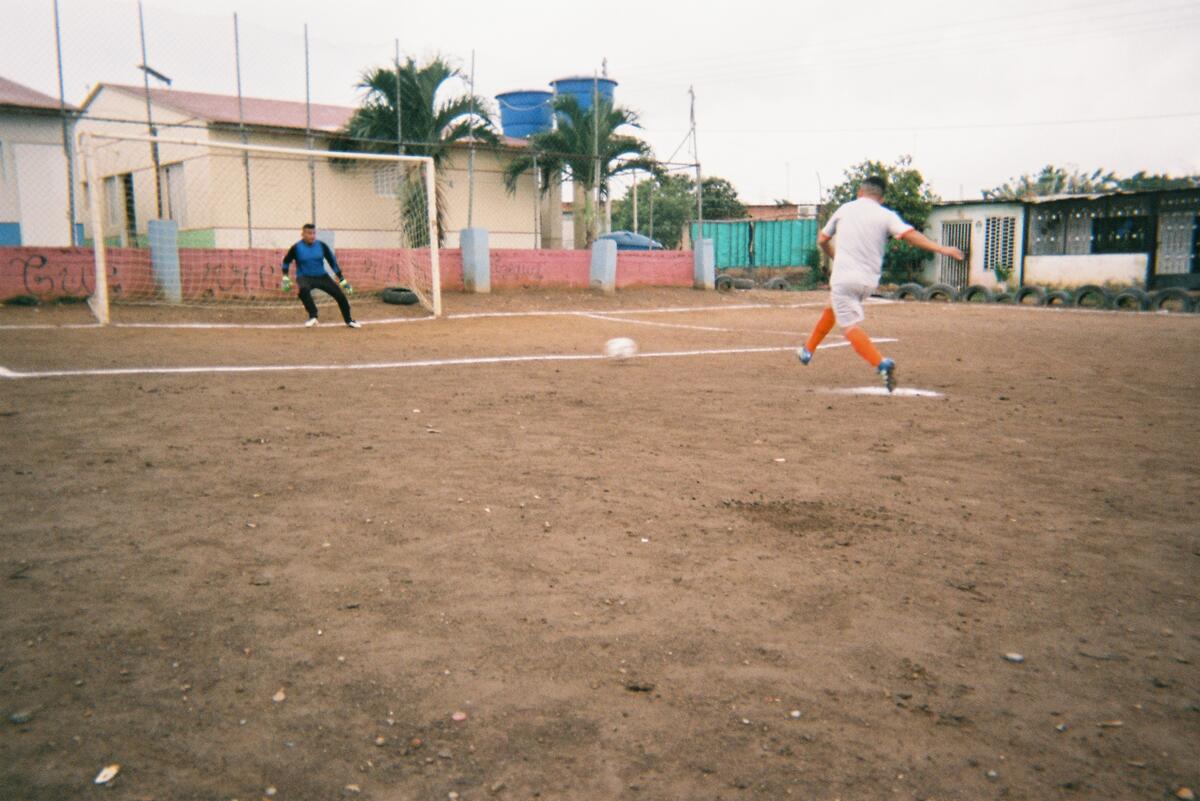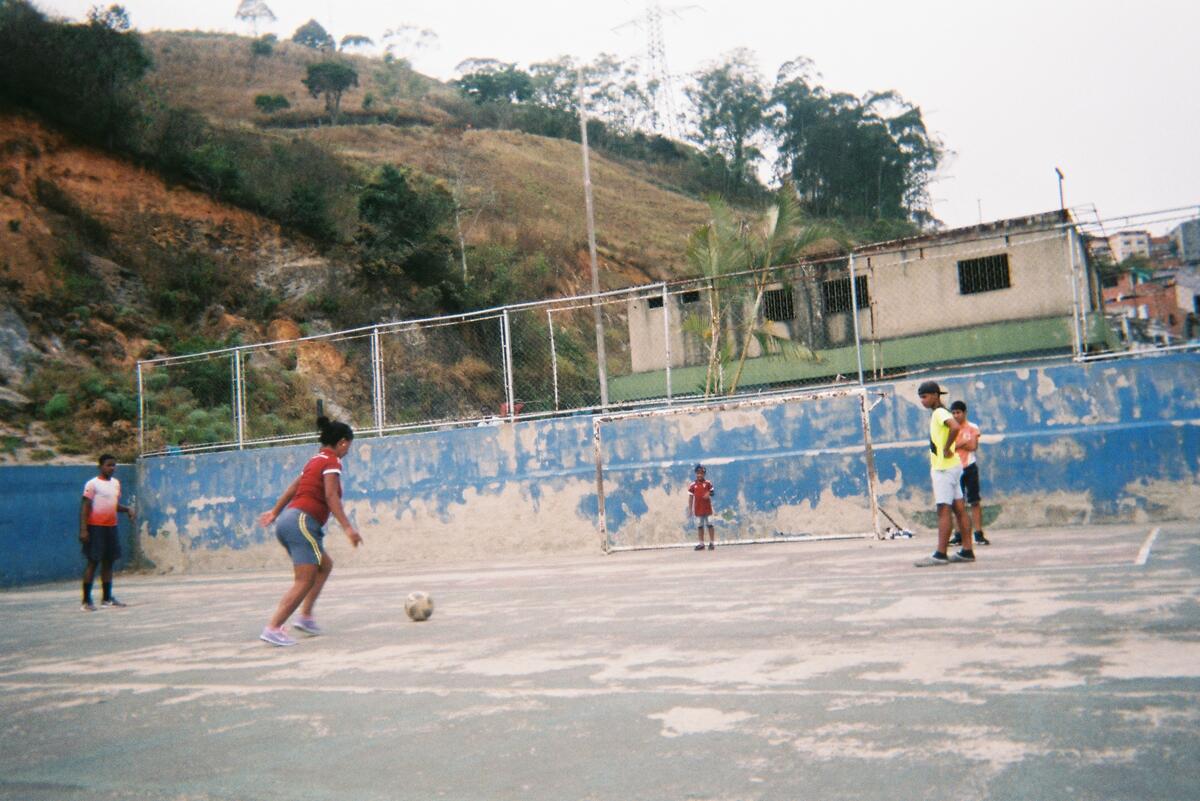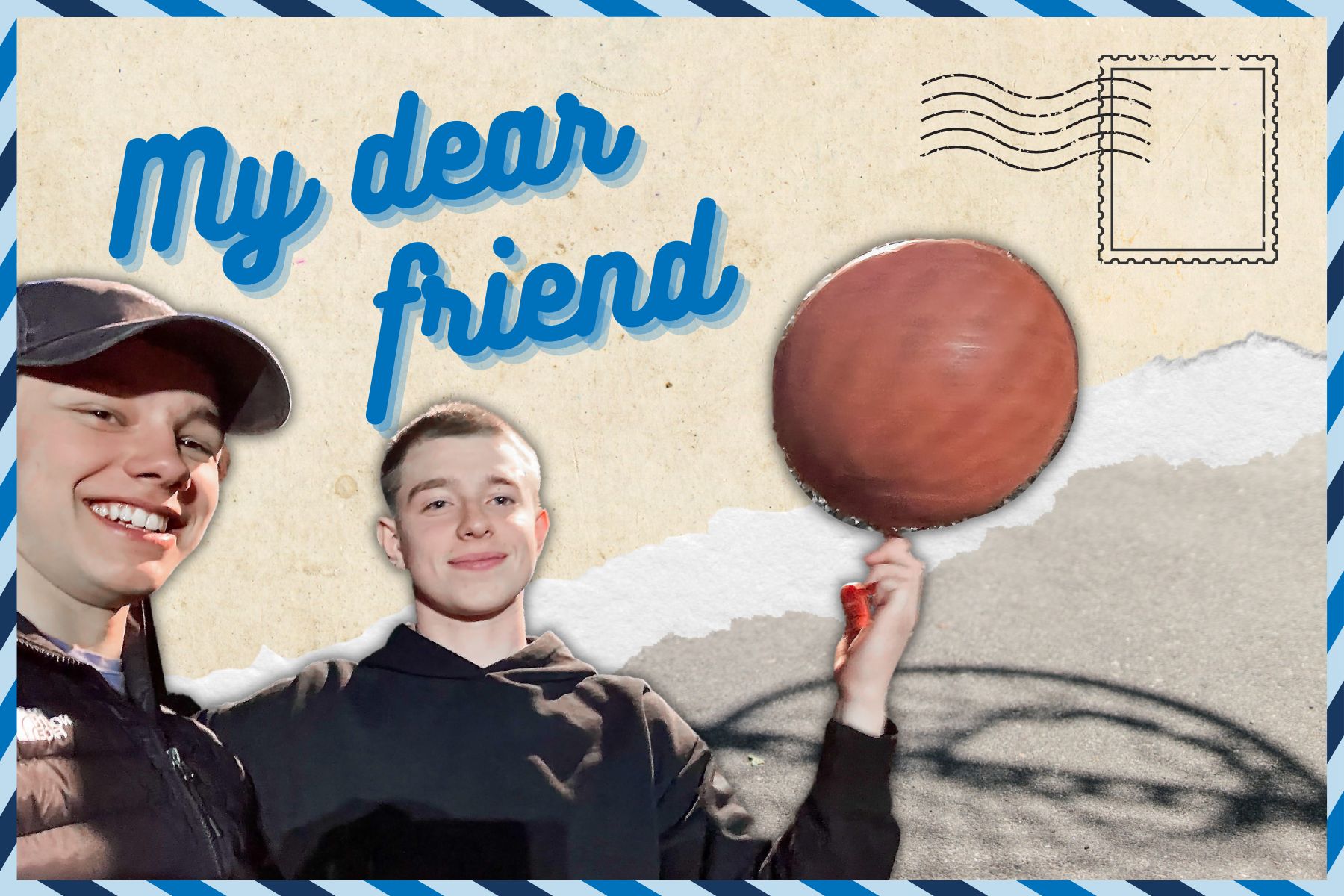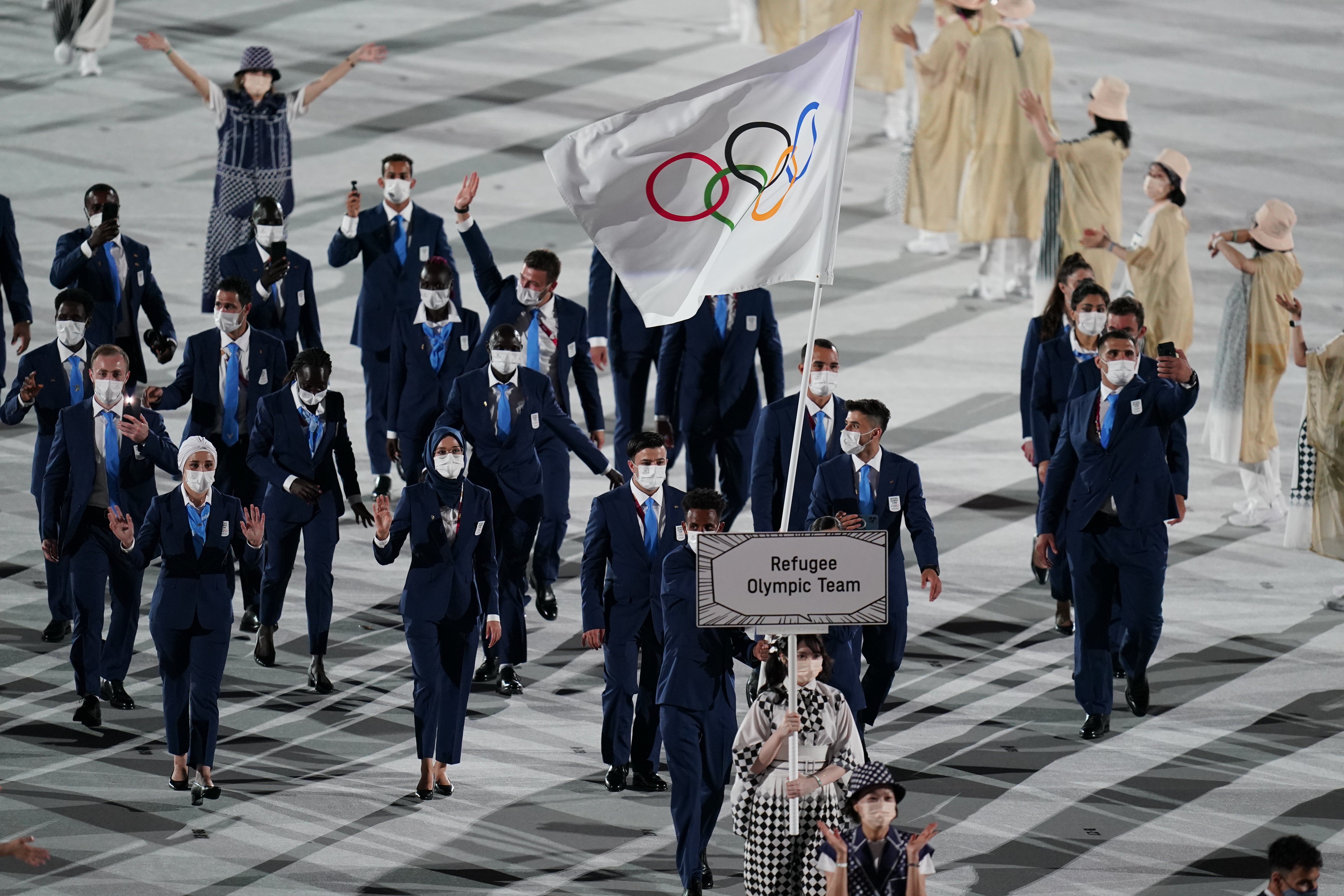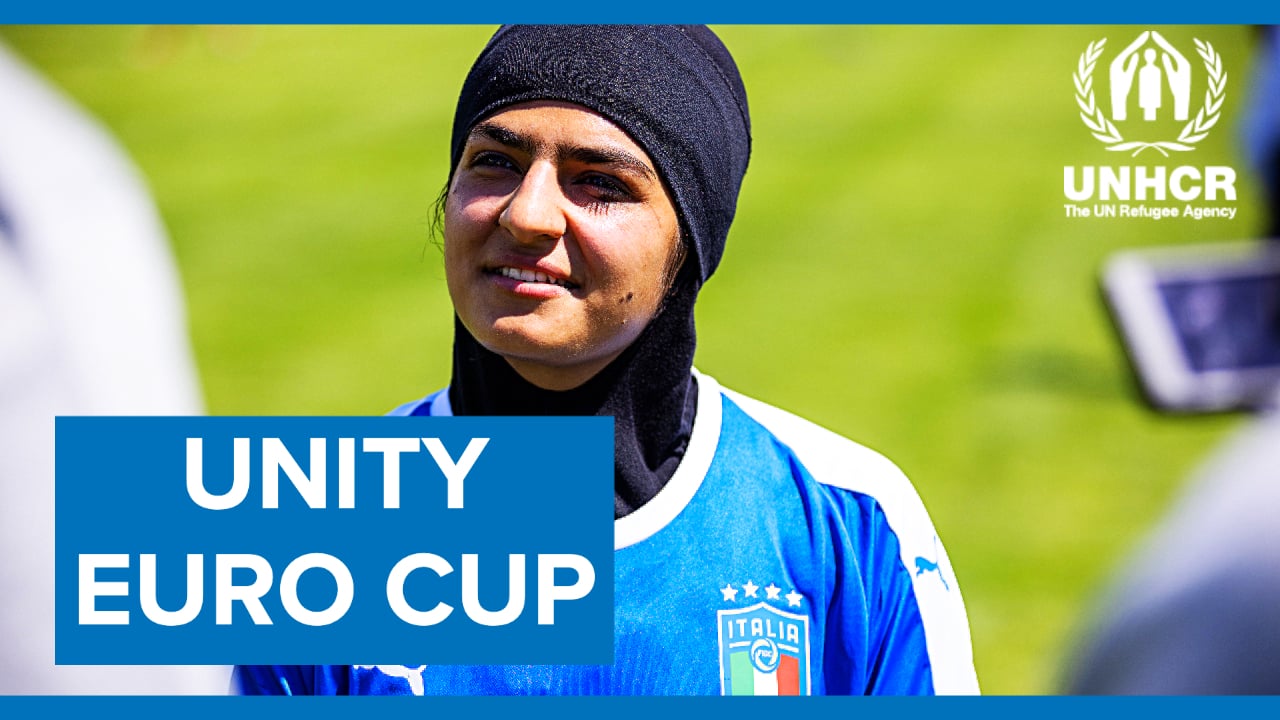Q&A: Born on the high seas, footballer finds fame in Europe
Q&A: Born on the high seas, footballer finds fame in Europe

MADRID, Spain, November 2 (UNHCR) - Antonio Rio Mavuba is a professional football player. His father, Ricky Mavuba, played for Zaire (now the Democratic Republic of the Congo) in the 1974 World Cup Finals. His parents arrived in France as refugees in 1984 and stateless Mavuba was only granted French citizenship two years ago. The 23-year-old midfielder has been capped several times for his adopted home and currently plays for Villarreal in Spain's Primera Liga. He spoke recently by phone to UNHCR External Relations Officer Francesca Fontanini. Excerpts from the interview:
You were born on the high seas. Please tell us about this.
I was born at sea on a boat off the coast of West Africa [in May 1984] when my family was fleeing the [1975-2002] civil war in Angola. The boat on which my family had embarked in Angola in the middle of the night moved in secret up the coast of Africa and then followed the [eastern] coastline of the Iberian Peninsula before reaching the French port of Marseille in March 1984.
I was born stateless during the course of this long voyage. My mother, Theresa, held Angolan nationality. It was on the boat, while drifting across the cold waters of the Atlantic, that my father Ricky named me Rio [River].
Your passport lists your place of birth as the sea. Has this ever caused you any problems?
On the whole, no. When people see this entry, they smile. The fact that I was called up for the French team certainly helped a lot in speeding up the administrative process [of getting citizenship]. In September 2004, when I was 21, French coach Raymond Domenech wanted to pick me for Les Bleus [France] for a match against Israel. But I had to be naturalized French to be eligible to play in this World Cup qualifier.
I was very irritated. But luckily all the media coverage about my past helped accelerate my case. Now, I'm like everybody else. I've lost a bit of my difference, my uniqueness, but my past is still a part of me.
Africans in flimsy boats arrive on Spanish soil almost daily. What do you think of this phenomenon?
They make for very powerful images. These people leaving from far away abandon everything; their family, their homes, their work, their friends and so on They want to find a better life in another country by risking everything and losing everything that they have ... the number of deaths at sea is a tragedy, but nobody knows the real figure.
What is the solution to this problem?
The solution would be to find a compromise between the countries of origin and the countries of final destination to help these people and to guarantee them a better life in their countries, at least so that they don't have to flee because of war or danger.
How was your integration in France?
Everything went well in Bordeaux, where I live. There are lots of different nationalities, people originating from North African countries mainly, so the town was already more open to welcoming foreigners. I fitted in well at my football club, Girondins de Bordeaux.
My mother found it a bit more difficult to learn the language. She took French courses and this helped ease her integration. She died when I was two years old and my father remarried and so it was my stepmother who raised me and my 11 brothers and sisters.
Your brothers and sisters live around France. How have they coped?
It's been easy for them from the point of view of the culture and the language. The most difficult thing they have encountered is the red tape [for getting citizenship]. I got my nationality in September 2004, after being stateless for some 20 years.
Have you ever visited your father's homeland?
Yes, I went once with my father and my sister when I was 10 years old. As a child, I had some good times with my friends and I played football with them. But now, when I look back on this visit, I picture a very difficult life. I met the national team of the Democratic Republic of the Congo (DRC) in 2004.
What memories, if any, do you have of your father's football career?
I do not remember well because I was young. What I do know is that my father was a very good player. The sports world considered him as a very good player. He was known as the "Black Sorcerer" for his fabulous corner kicks. I saw several of his matches on television. But because we did not have a satellite dish, the image was encrypted. He died when I was 12 years old.
Can sport help refugees?
Yes, of course. I had this experience first hand and it's a good way to forget the problems and share in something with other people. Ninemillion [an internet-based UNHCR campaign to bring education and sports to millions of refugee children around the world] is a good initiative and maybe one day I can promote it for my young African compatriots in DRC.


